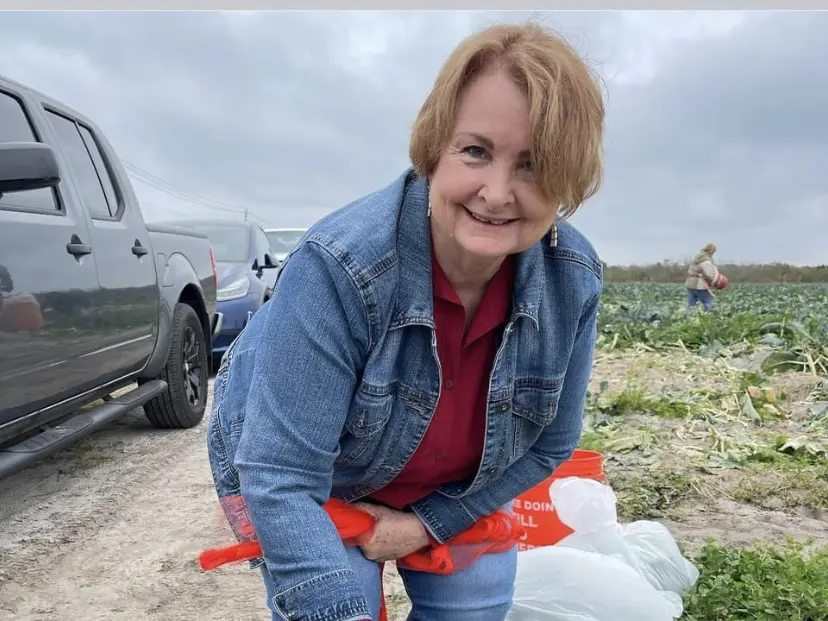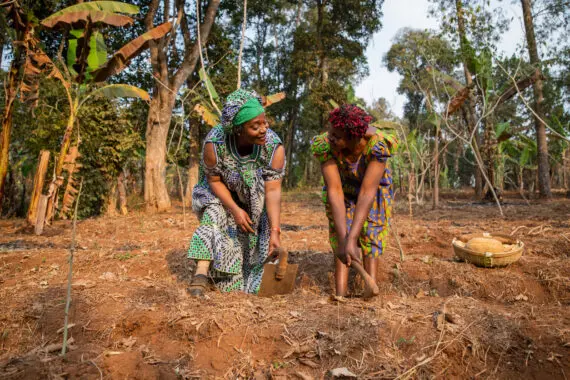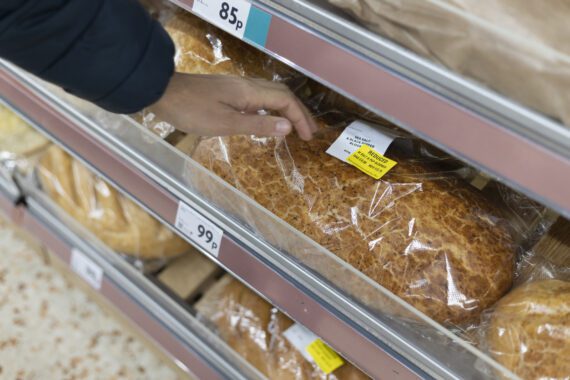By Todd Post
Deuteronomy 24:19 tells us, “When you reap your harvest in your field and forget a sheaf in the field, you shall not go back to get it; it shall be for the alien, for the orphan, and for the widow.”
This passage has inspired the practice of gleaning, clearing surplus crops from farmers’ fields, for millennia. Gleaning is increasingly popular in the United States as a way of providing healthy food for people living with hunger.
Long-time Bread for the World member Barbara Sayles leads a group of volunteer gleaners in Florida. For the past few years, she has also served as the Florida Regional Director of the Society of St. Andrew (SOSA), a national network of volunteer gleaners. SOSA builds relationships with farmers, many of whom learn about the network through their churches. These farmers generously allow volunteers to glean their fields following a harvest and bag this extra produce for distribution. Sayles explains, “This bridges the gap between food that would be wasted and people who are hungry.”
Farmers can’t market everything they grow, for reasons ranging from weak demand to blemishes that lead buyers to reject fruits and vegetables. Since 1979, SOSA has been working with schools, food banks, shelters, and other service organizations to distribute the food that volunteers glean. All the food is fresh and healthy.
Climate scientists consider reducing food loss and waste one of the most effective climate change solutions. Gleaning has always appealed to faith-based group, and increasingly, it is attracting secular organizations—for example, increasing numbers of college students who are concerned about both climate change and rising campus hunger.
In 2021, the Environmental Protection Agency published From Farm to Table: The Environmental Impacts of U.S. Food Waste. U.S. annual food waste and loss is currently between 73 million and 152 million metric tons, which, according to the report, is enough calories to feed more than 150 million people, or “all the food insecure people in America nearly four times over.”
As Bread for the World has often explained, food security and environmental sustainability are always interconnected. This is why food loss and waste is an important area of anti-hunger advocacy. Food loss and waste is a global problem. In low-income countries, most food loss happens before the food reaches consumers. Crops spoil because farmers don’t have storage facilities, refrigeration, and/or transportation to markets.
In wealthy countries, most food waste happens after it’s been purchased —food not eaten. But producers have few options when demand is low or supply chains break down, so waste is generated when crops are not harvested and sold. Early in the COVID-19 pandemic, farmers even resorted to plowing fields under and throwing away milk.
The U.N. Sustainable Development Goals include cutting food loss and waste in half by 2030. In September 2021, the United States reaffirmed its commitment to this target and joined the global Food Is Never Waste Coalition at the U.N. Food Systems Summit. The U.S. Department of Agriculture will lead efforts both to cut U.S. food waste in half and to support other countries in developing and carrying out their own plans.
Cutting food loss and waste in half will require a suite of solutions. A team of industry, nonprofit, foundation, and government leaders, ReFED, has developed a Roadmap of solutions that include gleaning. Gleaning cannot be the only solution to reducing food waste, but it deserves special consideration because it also reduces hunger. The people who practice this age-old tradition are also especially contributing to Bread’s mission to end hunger.
Barbara Sayles may have completed her term as SOSA’s Florida Regional Director, but she doesn’t plan to slow down as an anti-hunger leader. “I will continue my work through my role as Hunger Action advocate for Central Florida Presbytery,” she says, “and I plan to be more involved in the local Bread for the World Committee. I may volunteer to glean from time to time, but my work will focus on advocating for policy changes that help people address root causes of hunger.”
Todd Post is senior researcher, writer, and editor with Bread for the World.



